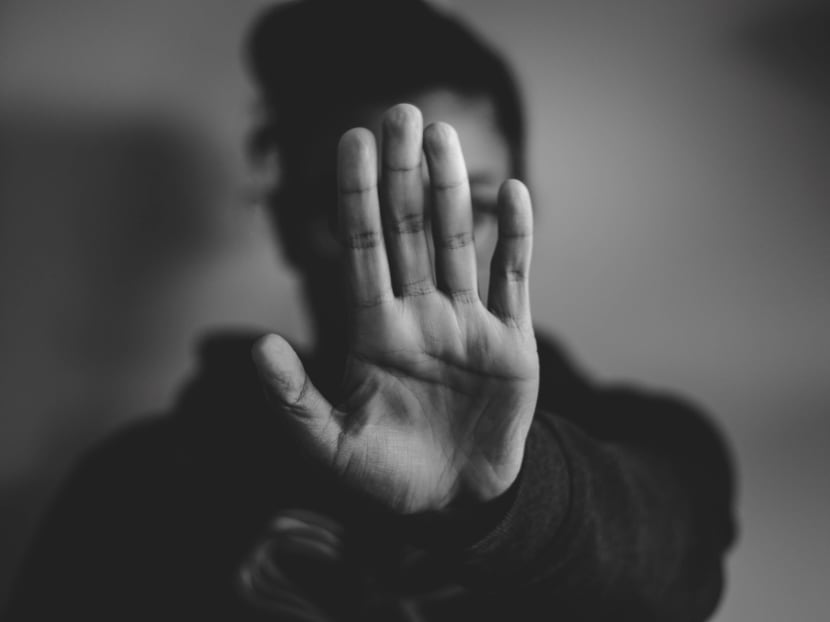Gen Y Speaks: Let’s put a stop to trial by social media
Over the past three months, three videos showing people acting in what could be deemed socially undesirable ways have gone viral online. All of them had one thing in common: In every case, the identity of the one who was perceived to have misbehaved was widely shared.

Doxing — the seeking out of the identity of a perceived wrongdoer and making it public — is unacceptable because it is akin to extrajudicial punishment, says the author.
Over the past three months, three videos showing people acting in what could be deemed socially undesirable ways have gone viral online.
All of them had one thing in common: In every case, the identity of the one who was perceived to have misbehaved was widely shared.
On Dec 23, 2018, a video surfaced on Facebook showing a cyclist hitting the side mirror of a lorry just before it swerved into him.
The incident was the talk of the town over the following couple of weeks, and popular opinion weighed heavily against the cyclist.
Someone then unearthed his identity — including his name, place of work and LinkedIn profile — and revealed it online.
The cyclist changed his social media accounts repeatedly, but netizens kept track of each new identity he created and continued to hound him.
In another case just a month earlier, the online mob made its presence felt in real life.
Netizens were quick to slam a gym instructor who posted an Instagram Story that allegedly fat-shamed a woman, and just as quickly, his employer suspended him.
And in the most recent example of online “CSI” work, the identity of a Gojek passenger was splashed across social media after a viral video showed an angry exchange between her and the private-hire car driver over Electronic Road Pricing charges along the route.
And when a couple of TODAY readers wrote in to question the behaviour of those who mocked the passenger, they too were attacked online.
“Hey reader, do you want to be hated too?” wrote one netizen in response to the letters by the readers.
These cases demonstrate the disturbing development of trial by social media. People are being judged not in a court of law, but on online discussion forums and social networking sites.
Netizens have become judge, jury and executioner, believing that they wield the power to influence the course of an individual’s life with a few strokes of the keyboard.
Clearly, this is wrong and we need to take a long, hard look at the ethical boundaries of our online behaviour. This is especially so when it comes to doxing — the seeking out of the identity of a perceived wrongdoer and making it public.
Doxing is unacceptable because it is akin to extrajudicial punishment. The perceived wrongdoer is being smeared before he is formally investigated or convicted of anything.
Let’s not take the law into our own hands. If what the person did was so terrible, the proper legal channels will deal with the situation appropriately.
Doxing is poor netiquette, but it is now the weapon of choice for online vigilantes. Measures have to be taken to discourage people from engaging in it.
The Media Literacy Council (MLC) runs the Better Internet campaign which aims to make the Web a safer and friendlier place for everyone.
Through trendy and attention-grabbing posts on various social media platforms like Facebook and Instagram, the MLC urges viewers to adopt good Internet habits.
But it has not addressed the issue of doxing and online vigilantism in recent months as its attention has been focused on combating fake news. In light of the recent incidents, it should take a stand against such malicious behaviour.
The Ministry of Education can also include anti-doxing messages in the cyber wellness curriculum for secondary schools, as students at that age are the next generation of netizens and it is important to inculcate the right values in them.
Most importantly, individuals must use the “stop, think, do” approach when doing anything online.
Is it really necessary to uncover the identity of a stranger you saw in a video who, in your opinion, did something wrong?
And if you come across a post which reveals someone’s identity, ask yourself: Do I really need to share this? What purpose does it serve?
Don’t share it just to jump on the bandwagon of public shaming.
Instead, choose to take the moral high ground — keep scrolling and forget you ever saw it.
That’s how you show that you are the bigger person.
ABOUT THE AUTHOR:
Jonathan Tiong is a third-year student at the National University of Singapore where he is majoring in Communications and New Media.









